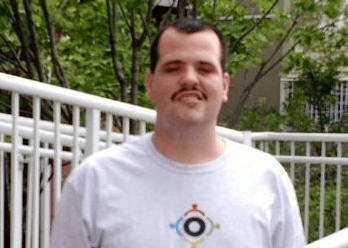By Krystian Shaw
My mom and I and my support worker have been advocating for better laws in Canada.
We have been advocating for better trained law enforcement, medical staff, health authorities, and non profit housing providers and landlords.
My worker from the disability field who provides me assistance says things could be better in the justice system with police and corrections and prosecutors and judges in having training on FASD/fetal alcohol spectrum disorder AND developmental disabilities and how to work with these folks and provide accommodations.
He also believes in the motto nothing about us without us and program partners in policy making so we can deliver testimony and advice to governments.
Most times professionals are trained in dealing with’ joe blows’ and not people who have developmental disabilities and FASD.
SO give professionals more awareness and extra training in the challenges, needs and issues of people with diverse abilities so they can have better understanding and better knowledge. Partners in policy making is a very interesting course to keep policy makers updated on our disability needs and issues.
So get partners in policy making and advisory councils by federal law and provincial and territorial law all across Canada.
We can look at the bigger picture by having different viewpoints and opinions and training in the different mental functions and mental capabilities.
Everyone who works for or is contracted by government needs to have better knowledge and training including nurses, police, hospital staff, health authorities and mental health wards and much more on and on in our society and non profit housing providers and landlords too.
My mom filled out the Accessible Canada survey and this is what she said:
Q-How can the Government of Canada raise awareness of and change attitudes in relation to accessibility (in the short term and long term)?
Get on board with Partners in Policy Making so our sons and daughters who have diverse abilities have a platform to create change.
The Police and nurses they deal with should be held to a high standard and when mistakes are made, they should be held accountable for their actions.
- How can the Government of Canada show leadership in improving accessibility and removing barriers for Canadians with disabilities?
Instead of laying charges when someone with a mental illness lashes out in a hospital setting per say, a meeting involving all parties should meet with police included to come to a most positive solution to help the patient.
Depending on how patient reacts to the situation, example if apathetic, then charge them if you see fit, but in most other situations a more helpful solution and more understanding of what happened can be reached.
Q- Do you have examples of collaborative models that have led to the creation of shared expectations and sustained culture change within organizations in relation to accessibility?
My son owns and runs a disability awareness and success stories newsletter and its a success and it reduces barriers and is accessible because its free to the community. He also is involved in a self-advocacy support group in an effort to create change.
Q-The overall goal of the legislation is to increase the inclusion and participation of Canadians in society and promote equality of opportunity by improving accessibility and removing barriers in areas of federal jurisdiction.
Do you have any input regarding this goal?
Everyone should have a voice and be listened to. How should the legislation define “accessibility” and/or “barrier”? Every where one goes, we should all be accepted everywhere.
Every room or building should have easy accessibility to get in. Every group should create no barriers to be accepted.
Q-Overall, which approach or approaches do you think would be best for federal accessibility legislation? Are there other approaches that you would suggest?
Adopt Partners in Policy Making would be a great start.
Q- If a prescriptive-type approach were to be taken, do you have any input on how standards could be developed?
Put yourself in their shoes. Treat others like you want to be treated. Show friendliness and communicate with them and encourage communication in return. Mutual respect goes a long way.
Q-If an outcome-based approach were to be taken, do you have any input on how accessibility outcomes could be established?
Train employees who come across anyone who faces challenges in life, They need to be taught patience and understanding on how to communicated most effectively with them, so mistakes don’t happen, life altering mistake anyway.
Q-Are there other organizations within federal jurisdiction that should be covered by the legislation?
Mental health professionals, and the RCMP.
Q- Are there organizations that should be exempt from the legislation?
No. Create an Advisory council for people with disabilities. Do Regular consultations.
Yes it should build on other accessibility that other countries have done. Public reporting of public agencies that are non compliant.
Q- Do you have suggestions for how the Government could help organizations to improve accessibility and remove barriers?
Creation of a Centre of Expertise on Accessibility and Barrier Removal to provide information and tools to help organizations improve accessibility and remove barriers.
Q-Do you have suggestions for how the Government could encourage, support and recognize organizations that show accessibility leadership?
Give Awards and money!
Q-In relation to the implementation and effectiveness of the legislation, how often would you want the Government of Canada to report to Canadians?
Every 3 months.
Q- What kinds of things should this report look at?
Meetings between law enforcement and medical professionals and families.











